#biography books
Text

Nansen - art by Boris Artzybasheff (1940)
#boris artzybasheff#fridtjof nansen#biography books#cover art#arctic explorers#north pole exploration#polar bear#schooner#book illustrations#anna gertrude hall#1895#1940
107 notes
·
View notes
Text
Hey guys!
Going off my last post, I want to also start reading books about Bob Dylan and his life, but I don't know which books to read or which are the best or most accurate. So if any of you guys have any suggestions for books to read on Bob, please let me know! I'm open to reading anything about him that was written by people in his life like his ex gfs/wives or by peeople or researchers who know a lot about him. I'm planning on reading Chronicles: Vol. 1, The Philosophy of Modern Song and Tarantula by the man himself eventually, but I'm also looking for other books that go more in full depth into his life/career story. If you guys could give me any suggestions as a new Bob book reader, it would be much appreciated!
12 notes
·
View notes
Text

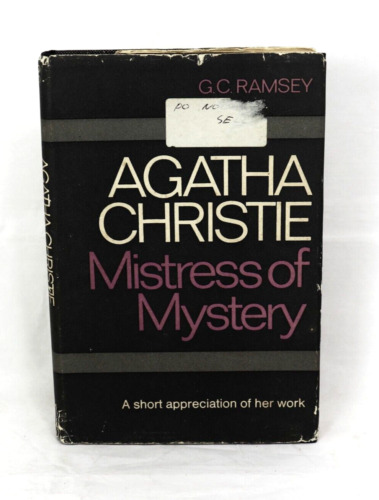



Agatha Christie Mistress of Mystery by G.C.Ramsey Short Appreciation of Her Work - Biography // autradingpost - SHOP
5 notes
·
View notes
Text
25 Laws of power for women
Conceal your goals especially the ones that are appealing. Losing weight, reinventing yourself, marrying wealthy. Instead talk about your altruistic goals - to help children, invest in education, this will chase insecure people with vile intentions.
Do not give anyone your source of power: Was is a book that changed your life? a mentor? a movie? Never give up your secret to success. If forced to do say allude to God, the universe, the a random phenomenon
Use the patriarchy to your favor; we live in a world that is, only associate with men who have power, use that power for good.
Never appear too perfect but be selectively vulnerable when needed. Only share something that you will be comfortable saying. You might say “I forget my keys all the time,” “I don’t know how to perfectly park a car “. But never disclose something you are not comfortable with just because you are afraid of being perfect.
Maintain distance in relationships. Friends are the best and you need them. But if you feel that they are becoming too dependent, see them at your own will. But also the reverse could be the case. Your friend may keep a distance, and that is the way of life. You have got to move on from it.
Develop your own style that makes you unique, beautiful, and elegant. Avoid trying to fit in the crowd of people who claim to care less about their style yet have too many opinions about other women’s style
Avoid male friends at all cost, you will have male colleagues, male bosses, male acquaintances, business partners. Keep it that way. You do not want a Truman Capote divulging your secrets to the world. Do not keep a man who does not fit your standard.
You do not have to win at every game. Pick and choose what is best for you and leave room for others. And step down if you have attained that level of success, do not let the society do it for you.
Trust people but remember that we are all humans. So trust with discretion!
Confuse people with kindness; people are not always comfortable with beautiful and intelligent women. That power is too intimidating so confuse them by being genuinely generous, curious, kind, and passionate.
Keep your strong opinions to yourself.. if you support a movement, a way of life, do so silently.
We all have dirty laundry, wash them privately, don’t expose yourself. Remain silent when people try to attack you or shame you. Whatever is not confirmed is not true. You are the only one who knows all the truth about you.
Don’t attract pity or praise: People who pity you do not help you, in fact they might think that you are weak and could mock you at their annual gossipping meeting. And if you are doing things for the sake of praise you are wasting your time.
Choose yourself all the time; never put any one’s feelings above yours.
Trust your own intuition if you feel someone is being malicious towards you, giving you back handed compliments then you should let them go
Never speak bad of another woman. Do not lazy around gossipping. Keep your hands clean and your conscience clear.
Avoid women with low self esteem they will bring you down. For some reason they do not like seeing other women who are doing better than them
Be careful who you seek validation from. Not everyone needs to be pleased. If they are in no way capable of contributing to your life in the ways you prefer, then don’t ask them for their opinions or please them.
Do not compete with other women, if you do you are only putting them on a pedestal. You are making the the standard by which you measure your progress. If you do compete, begin digging your grave.
Do not give unsolicited advice, do not share the inner workings of your mind, If your mouth is very charitable you better start journaling.
Be well-rounded and interesting. It attracts people. It also keeps you busy because you are continually improving and learning. An idle mind is an easily subdued one.
Avoid women who want to live vicariously through you; they want to know who you know, shop where you shop, befriend who you befriend, wear what you wear.
Pay attention to the source of your discomfort; get rid of them. You tell them your dreams and they remind you of all your hindrances. They ask why are you dressed so fancy as though fancy isn’t subjective. They undermine you interests and goals. They will also be quick to bring you down because they are afraid of your potential.
Do not fear power or please power. When we see powerful people we try to hard to befriend them, to be close to them but you need to be comfortable without them. Don’t push yourself in the name of friendship, do not try too hard to be in their inner circle. Your independence of mind is the most important. Instead become a powerful woman, aloof to the presence of power but aware of its importance. Be an ingenious and intelligent and use your creativity to uplift yourself. When you do so it will be hard to ignore you. Even the powerful will become an ally.
Enjoy moments of solitude. Use that time to develop yourself, improve your body, learn new skills, create with your mind, read widely, become more elegant, then launch yourself.
Remember the most powerful women are the most intelligent. Inspired by Robert Greene's 48 Laws of Power. Use at your discretion.
#self improvement#self love#growth#mindfulness#self development#beauty#education#self care#classy#self help#power#new books#booklover#book review#book quotes#books#biography#self control#self discipline#self worth#students#smart#emotions#emotional intelligence#self growth#discipline#get motivated#life goals#gratitude#femininity journey
9K notes
·
View notes
Text

Book Cover Design "Under The Spotlights"
#biography#biography books#book design#books#book cover#booklr#design#print#creative#self love#author#cover art#album cover#cover#pop#art#art style#women#girl power#book quotes
1 note
·
View note
Text
Forgive me for making yet another post about the French Revolution but one small detail that makes me laugh is when, as things started to go seriously wrong, one of Louis XVI's advisers tried to persuade him & Marie-Antoinette to get away from Paris and wait for things to calm down (the idea was "if you lay low and wait, the newly-created National Assembly will vote something stupid and lose popular support" which was a solid plan honestly.) But he was also like "whatever you do, DO NOT go East or South or people will think you'll get help from other monarchies to restore your power and that won't calm things down"
So the King was advised to flee to Normandy, which... is just a short ferry ride away from another monarchy. But that's completely different since it's England. To be fair to the English, the French monarchy had basically bankrupted itself a few years back to send millions in support of the American revolutionaries because it would be a shame not to take advantage of "perhaps the best opportunity for centuries to come to put England in its place" (actual quote by France's minister of Foreign Affairs in 1777)
—still I love the realistic approach of the King's adviser telling him, Sire you can't go near any of our borders rn, it'll escalate the situation, Parisians will know you're trying to get another country to help. Obviously you can go set up camp right across the sea from England though, that's fine since everyone knows the English wouldn't piss on us if we were on fire¹
¹ Perfidious Albion was like "aw no France is in turmoil and possibly weakened :) a shame :)" exactly like France re: them at the start of the US independence war
² they also thought well these backward french are finally following our glorious example and entering civilisation (parliamentary monarchy)
³ and only when the Girondins started being like "let's spread the French Revolution to the whole universe!!! or at least Belgium" did England finally decide "it's been a while since we last declared war on France actually" (but it was too late for Louis XVI)
⁴ That's not how footnotes work sorry. Trying to make my post look fancier
#autumn is when i read books about my pet century (the 18th)#current one is simone bertière's excellent biography of marie-antoinette which mentions all the above and much more!#i discovered that when she was a prisoner marie-antoinette used paul & virginie as a book cipher to encrypt her letters which made me laugh#i'll be the first to say it but paul & virginie was the Twilight of the 18th century#good on our late austrian queen for finding a use for this boring preachy novel
2K notes
·
View notes
Link
I remain a big fan of Terry’s work.
1 note
·
View note
Text
There is no greater agony than bearing an untold story inside you.
- Maya Angelou, I Know Why the Caged Bird Sings
#quotes#books#literature#lit#classics#academia#light academia#dark academia#chaotic academia#book#book quotes#quotation#Maya Angelou#Memoir#Nonfiction#Biography#Autobiography#I Know Why the Caged Bird Sings
841 notes
·
View notes
Photo
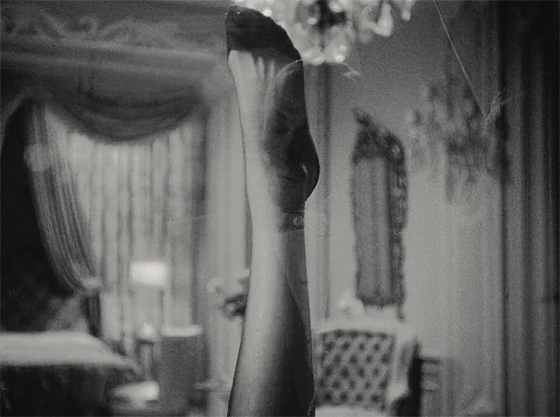

RITA HAYWORTH in GILDA (1946)
#i can't believe i'm still waiting for the definitive rita biography#hopefully the new bogie and bacall book will fill the void#rita hayworth#gilda#the silver screen#boudoir girls#*
942 notes
·
View notes
Text
By Tom Gauld
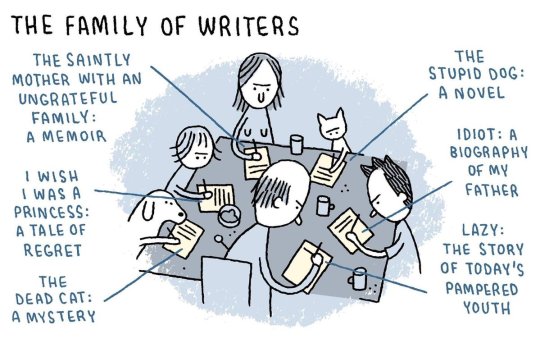
204 notes
·
View notes
Text
Depuis hier soir, je songe à vous, éperdument. Un désir insensé de vous revoir, de vous revoir tout de suite, là, devant moi, est entré soudain dans mon coeur. Et je voudrais passer la mer, franchir les montagnes, traverser les villes, rien que pour poser ma main sur votre épaule, pour respirer le parfum de vos cheveux.
Ne le sentez-vous pas, autour de vous, rôder, ce désir, ce désir venu de moi qui vous cherche, ce désir qui vous implore dans le silence de la nuit ?
Lettre de Maupassant à Hermine Lecomte de Noüy (19 décembre 1887) in Maupassant, Frédéric Martinez
#Lettre de Maupassant à Hermine Lecomte de Noüy#Maupassant#Frédéric Martinez#livre#book#citation#citation française#littérature#littérature française#biographie#correspondance
155 notes
·
View notes
Text
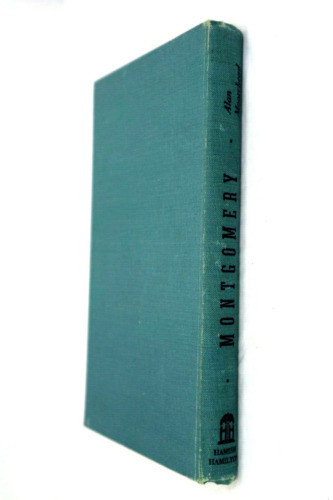




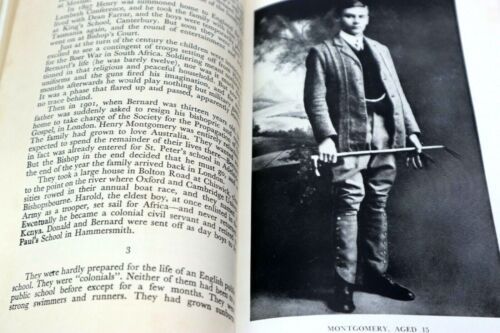

MONTGOMERY A Biography by Alan Moorehead 1947 Australian Edition Vintage - Shop
3 notes
·
View notes
Text
This is why we still need Women’s History Month.
By Martha Gill
What was life like for women in medieval times? “Awful” is the vague if definite answer that tends to spring to mind – but this is an assumption, and authors have been tackling it with new vigour.
The Once and Future Sex: Going Medieval on Women’s Roles in Society by Eleanor Janega, and The Wife of Bath: A Biography by Marion Turner both contend that women were not only bawdier but busier than we thought: they were brewers, blacksmiths, court poets, teachers, merchants, and master craftsmen, and they owned land too. A woman’s dowry, Janega writes, was often accompanied with firm instructions that property stay with her, regardless of what her husband wanted.
This feels like a new discovery. It isn’t, of course. Chaucer depicted many such cheerfully domineering women. The vellum letter-books of the City of London, in which the doings of the capital from 1275 to 1509 were scribbled, detail female barbers, apothecaries, armourers, shipwrights and tailors as a matter of course. While it is true that aristocratic women were considered drastically inferior to their male equivalents – traded as property and kept as ornaments – women of the lower orders lived, relatively, in a sort of rough and ready empowerment.
It was the Renaissance that vastly rolled back the rights of women. As economic power shifted, the emerging middle classes began aping their betters. They confined their women to the home, putting them at the financial mercy of men. Female religious power also dwindled. In the 13th century seeing visions and hearing voices might get a woman sainted; a hundred years later she’d more likely be burned at the stake.
“When it comes to the history of gender relations, storytellers portray women as more oppressed than they actually were”
Why does this feel like new information? Much of what we think we know about medieval times was invented by the Victorians, who had an artistic obsession with the period, and through poetry and endless retellings of the myth of King Arthur managed somehow to permanently infuse their own sexual politics into it. (Victorian women were in many respects more socially repressed than their 12th-century forebears.)
But modern storytellers are also guilty of sexist revisionism. We endlessly retread the lives of oppressed noblewomen, and ignore their secretly empowered lower-order sisters. Where poorer women are mentioned, glancingly, they are pitied as prostitutes or rape victims. Even writers who seem desperate for a “feminist take” on the period tend to ignore the angle staring them right in the face. In her 2022 cinematic romp, Catherine called Birdy, for example, Lena Dunham puts Sylvia Pankhurst-esque speeches into the mouth of her 13th-century protagonist, while portraying her impending marriage – at 14 – as normal for the period. (In fact the average 13th-century woman got married somewhere between the ages of 22 and 25.)
But we cling tight to these ideas. It is often those who push back against them who get accused of “historical revisionism”. This applies particularly to the fantasy genre, which aside from the odd preternaturally “feisty” female character, tends to portray the period as, well, a misogynistic fantasy. The Game of Thrones author George RR Martin once defended the TV series’ burlesque maltreatment of women on the grounds of realism. “I wanted my books to be strongly grounded in history and to show what medieval society was like.” Oddly enough, this didn’t apply to female body hair (or the dragons).
This is interesting. Most of our historical biases tend to run in the other direction: we assume the past was like the present. But when it comes to the history of gender relations, the opposite is true: storytellers insist on portraying women as more oppressed than they actually were.
“The history of gender relations might be more accurately painted as a tug of war between the sexes”
The casual reader of history is left with the dim impression that between the Palaeolithic era and the 19th century women suffered a sort of dark age of oppression. This is assumed to have ended some time around the invention of the lightbulb, when the idea of “gender equality” sprang into our heads and right-thinking societies set about “discovering” female competencies: women – astonishingly – could do
things men could do!
In fact the history of gender relations might be more accurately painted as a tug of war between the sexes, with women sometimes gaining and sometimes losing power – and the stronger sex opportunistically seizing control whenever it had the means.
In Minoan Crete, for example, women had similar rights and freedoms to men, taking equal part in hunting, competitions, and celebrations.
But that era ushered in one of the most patriarchal societies the planet has ever known – classical Greece, where women had no political rights and were considered “minors”.
Or take hunter-gatherer societies, the source of endless cod-evolutionary theories about female inferiority. The discovery of female skeletons with hunting paraphernalia has disproved the idea that men only hunted and women only gathered – and more recently anthropologists have challenged the idea that men had higher status too: women, studies contend, had equal sway over group decisions.
This general bias has had two unfortunate consequences. One is to impress upon us the idea that inequality is “natural”. The other is to give us a certain complacency about our own age: that feminist progress is an inevitable consequence of passing time. “She was ahead of her time,” we say, when a woman seems unusually empowered. Not necessarily.
Two years ago, remember, sprang up one of the most vicious patriarchies in history – women were removed from their schools and places of work and battoned into homes and hijabs. And last year in the US many women lost one of their fundamental rights: abortion. (Turns out it was pro-lifers, not feminists, who were ahead of their time there.)
Both these events were greeted with shock from liberal quarters: how could women’s rights be going backwards? But that only shows we should brush up on our history. Another look at medieval women is as good a place to start as any.
Martha Gill is a political journalist and former lobby correspondent
#Women’s History#books for women#The Once and Future Sex: Going Medieval on Women’s Roles in Society#Eleanor Janega#The Wife of Bath: A Biography#Marion Turner
708 notes
·
View notes
Text
A Guide to Mastery: Finding Your Life's Work
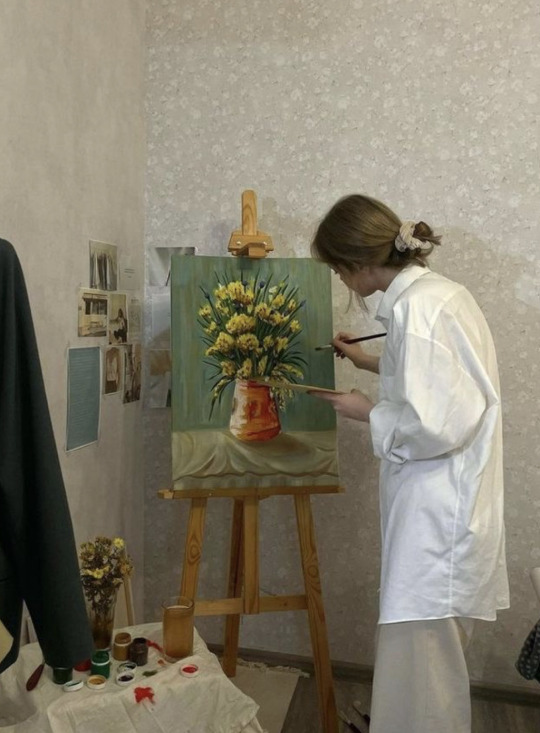



Mastery is what we hope to attain. We hope to get a point where we become master of our fields, experts of our work, and mentors to younger people. But the big question we ask ourselves is "what should I do?" "what can I do?" "what is my purpose in life?" and that is a very big question that we might spend our entire lives trying to figure out.
It is difficult now, especially when we hear people talk about their careers, we see updates on people's career changes on LinkedIn and everyone is vying for a job in big tech, big law, consulting, Wall Street and you feel left out, not good enough, in fact discouraged.
However, you can find fulfillment by taking this self-discovery one step at a time, at a pace that best suits your skills, and still rise to the top.
Here is how to find your Life's work:
Look back to your childhood
Often to figure out what you want to do or who you want to become you have to look back to your past, your childhood. What made you tick? What classes were most fun for you? Who did you enjoy watching or spending time with growing up? The answers can give you a peek into the kind of life you want. Growing up I enjoyed reading biographies of people. I was obsessed with how they became successful and how they set themselves apart - now my writing mirrors that.
2. Find your niche
The uncertainty or discomfort you feel could be caused by not fitting into one field. You feel like you can do a lot more than there is out there. This is a great feeling. if you feel this way do not be discouraged. It is your life's journey to figure out the intersection of your interest. It is a sign that you should try out multiple things. Your career may become an amalgamation of your interest, ideas, disciplines, and fields. Here are some intersections that I found in people I admire:
Design + Technology - Steve Jobs- Apple Co-founder, Brian Chesky - Airbnb Co-founder
Food + Technology - Apoorva Mehta; co-founder Instacart
Culture + Commerce - Most architects, designers fit this category
Science + Art - Trip Hawkins; founder of Electronic Arts
Community + technology - Whitney Wolfe Herd; Founder of Bumble
Food + business: Kaspar Basse; founder of Joe & The Juice
Sportsmanship + design - Phil Knight; co-founder of Nike
Environmentalism + Sportsmanship - Yvon Chouinard; founder of Patagonia
These people are at the top of their fields. You can start by having a double major, or minoring in a totally different field (Art + Finance, Biology + Sports management etc)
3. Resist the pressure of the majority
There is always a group of people on the other side of your interest and skills - parents, friends, professors, peers who want something different from what you aspire to. You love art but they remind you that the pay is meagre, you want be a lawyer but they tell you, you are not good enough for law. You see, the salary you get paid for doing something you love should not stop you from getting started. You will eventually become so good that the value you provide will eventually command a huge compensation but for now bend down and learn.
4. Find a mentor
Once you get a glimpse of what you feel like you want to do. Find a mentor, your mentor could be distant or imminent. A distant mentor could be a renowned expert, a person you stumble upon through a book, an interview etc. Their story inspires you and you somehow you feel seen, you goals aren't so impossible anymore. The imminent mentors are the people you meet through school, work and whose work has some skills you need to learn for your Life's work. Your relationship with them or experience with them is the closest to reality of your Life's Work. Learn as much as you can in this process.
Welcome to my A Guide to Mastery series inspired by the book Mastery.
#self improvement#self love#growth#mindfulness#self development#beauty#education#classy#self care#self help#study motivation#mindset#mind control#emotional intelligence#booklover#book review#biography#motivation#self discipline#self worth
667 notes
·
View notes
Photo

Becoming by Michelle Obama
#becoming#obama#michelle obama#women#quote#quotes#love#life advice#power#books#book#book quote#literature#poisonedsequin#writer#memoir#biography#autobiography#nonfiction#books quote
583 notes
·
View notes
Text
GUYYYYYYYYYYYYS i need nonfiction book recs about polar exploration. i want biographies i want i want north i want south i want literally whatever as long as it's non fiction and its related to polar exploration.
I already have May We Be Spared To Meet On Earth, James Fitzjames: The Mystery Man of the Franklin Expedition, and Francis Crozier: Last Man Standing? on my to read list but if there are other primary source books or biographies of these two i want to know about those but also i want anything and everything about polar exploration. ANYTHING.
#i'm looking into biographies about ALLL the major polar exploration figures#arctic and antarctic all the way across the 19th and early 20th century#so if yall have got book recs PLEASE drop them in the notes and/or my ask box/dms#the terror#polar exploration
92 notes
·
View notes